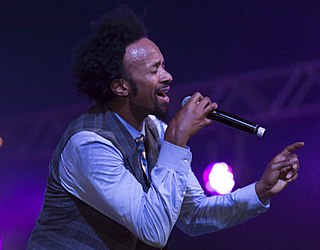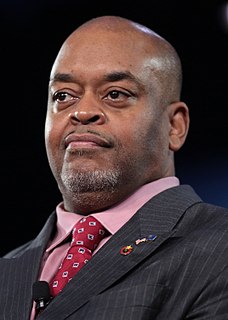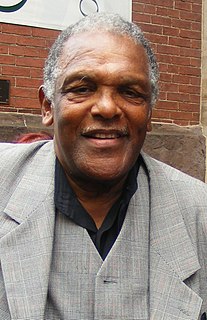A Quote by J. C. Watts
That's the way blacks have been encouraged to think: that we got to stick together. You've got a situation today where if a black person says he thinks O.J. Simpson's guilty, other blacks will cut their eyes at him and say, 'You ought to go somewhere and sit down and shut up.'
Related Quotes
Blacks were not enslaved because they were black but because they were available. Slavery has existed in the world for thousands of years. Whites enslaved other whites in Europe for centuries before the first black was brought to the Western hemisphere. Asians enslaved Europeans. Asians enslaved other Asians. Africans enslaved other Africans, and indeed even today in North Africa, blacks continue to enslave blacks.
I never, with my eyes, saw the mistreatment of any black person. Not once. Where we lived was all farmers. The blacks worked for the farmers. I hoed cotton with them. I'm with the blacks, because we're white trash. We're going across the field.... They're singing and happy. I never heard one of them, one black person, say, I tell you what: These doggone white people - not a word!... Pre-entitlement, pre-welfare, you say: Were they happy? They were godly; they were happy; no one was singing the blues.
Class certainly loomed large in Katrina's aftermath. Blacks of means escaped the tragedy; blacks without them suffered and died. In reality, it is how race and class interact that made the situation for the poor so horrible on the Gulf Coast. The rigid caste system that punishes poor blacks and other minorities also targets poor whites.
African-Americans have always viewed the protection of black lives as a civil rights issue, whether the threat comes from police officers or street criminals. Far from ignoring the issue of crime by blacks against other blacks, African-American officials and their constituents have been consumed by it.
We felt that as blacks there was a quota. We used to talk with other blacks on other clubs. There was a way they use to do it called stacking. If you had five halfbacks instead of one being a left halfback and one being a right halfback then you would stack them all at left and let them cut each other. It kept the numbers down. A lot of them went to Canada. We would talk with guys on the other clubs including Detroit, Pittsburgh, Chicago, Cleveland, San Francisco and whoever. The numbers remained relatively about the same in the 1950's. They weren't carrying more then six.
I was on a panel with light skinned Blacks and a famous gay science fiction writer, who were complaining about how Blacks are against gays and light skinned Blacks and how intolerant Blacks are of different groups. My position was that Blacks were among the most humanistic, tolerant groups in the country and that across the street from my house in Oakland was one inhabited by White gays.
































